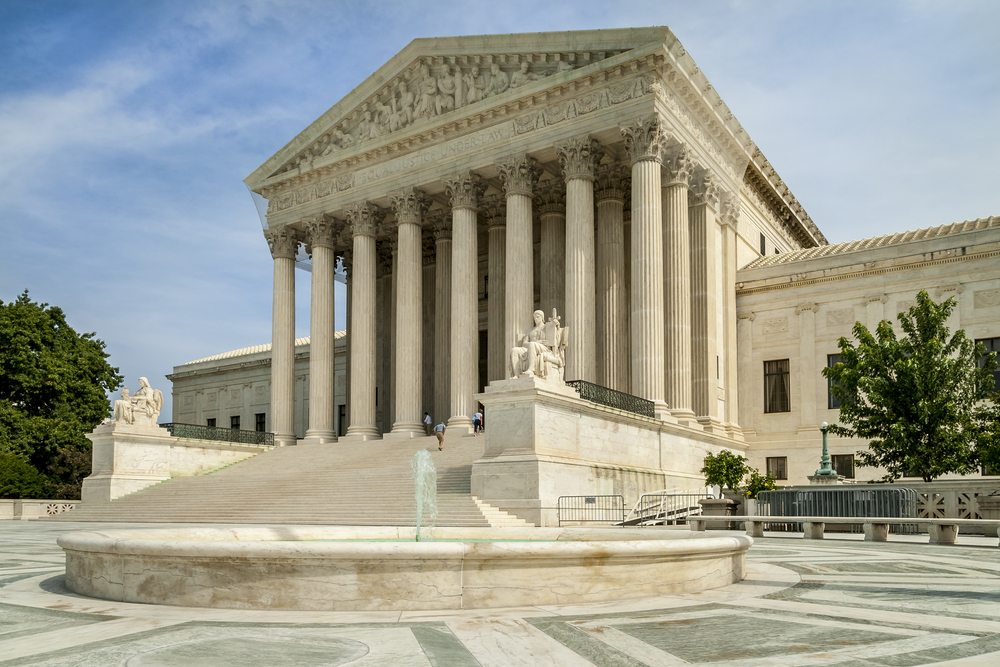March 4, 2020 — The U.S. Supreme Court delivered a surprise on March 2 when it announced it will hear a challenge to the constitutionality of the Affordable Care Act (ACA) next term, leap-frogging over the process that was playing out in lower courts. Oral arguments have not yet been scheduled, but are likely to fall in October. Depending on the court’s decision, it could force the next Congress to either “fix,” replace, or drop the ACA as an early priority.
“It is unusual for the Supreme Court to intervene in a case like this one before the lower courts have completed their process,” noted Jon Bigelow, executive director of the Coalition for Healthcare Communication. “This ensures that the ACA will be a major issue in yet another election cycle, but it also advances the schedule for what will probably be a definitive decision, up or down, on the constitutionality of the ACA, including key provisions that go beyond health insurance, such as the Sunshine Act,” Bigelow added.
In 2018, 20 Republican state attorneys general brought a lawsuit saying that, because the ACA’s “individual mandate” was premised on Congress’ taxing authority and the 2017 tax reduction bill reset the penalty at zero, the entire ACA is unconstitutional. In the U.S. District Court for the Northern District of Texas, Judge Reed O’Connor ruled in favor of this position. The Trump administration also supports this position.
Democratic state attorneys general appealed the decision to the U.S. Court of Appeals for the Fifth Circuit. In December 2018, the Court of Appeals agreed with Judge O’Connor that the ACA requirement that individuals must have health insurance is unconstitutional, but questioned whether this necessarily means all parts of the ACA are unconstitutional. They sent the case back to Judge O’Connor, asking him to “conduct a more searching inquiry” to defend his decision that the entire ACA had to fall if the individual mandate fell, or to indicate which provisions of the act could stand.
Although California’s Attorney General, Xavier Bacerra, then appealed the decision directly to the Supreme Court, it was widely assumed that bench would decline to hear the case until after Judge O’Connor issued a response and then the Court of Appeals ruled on that, a process expected to take up to a year.
That the Supreme Court agreed to hear the case without waiting for the lower courts to sort it out suggests the importance to the nation. That the Court waited until now to take the case means that it will not be ruled on before the current term ends in June; if oral arguments occur in October, the decision likely would be announced in early 2021.
The Supreme Court previously affirmed the ACA’s constitutionality in major cases in 2012 and 2015. Five justices who were in the majority those times remain on the court.
The most obvious impact of this case is on the roughly 20 million Americans who now have health insurance under the ACA. A Supreme Court determination that the ACA is entirely or largely unconstitutional would be a wrenching change disrupting their lives and finances. Other provisions that affect the private insurance market (coverage of pre-existing conditions, for example) could also be invalidated. Although presumably there would be a grace period for implementation, the next Congress—whichever party wins the Senate and House—would be forced to act to revise and enhance the law to address whatever failings the Court identifies, or replace it, or simply let many Americans lose their insurance. Even if the Supreme Court rules that the full ACA remains constitutional, its decision may reset the ongoing debate over our health insurance system.
The ACA legislation had several other important provisions that may now be at risk. For example, the ACA outlined the pathway for approval of biosimilars and established the “innovation center” authority that might be used for an international pricing index. The ACA also was the vehicle for enacting the Sunshine Act; if the ACA is overturned, both parties will presumably push to re-enact the Sunshine Act—but the process may open the opportunity either to broaden or limit its scope.




